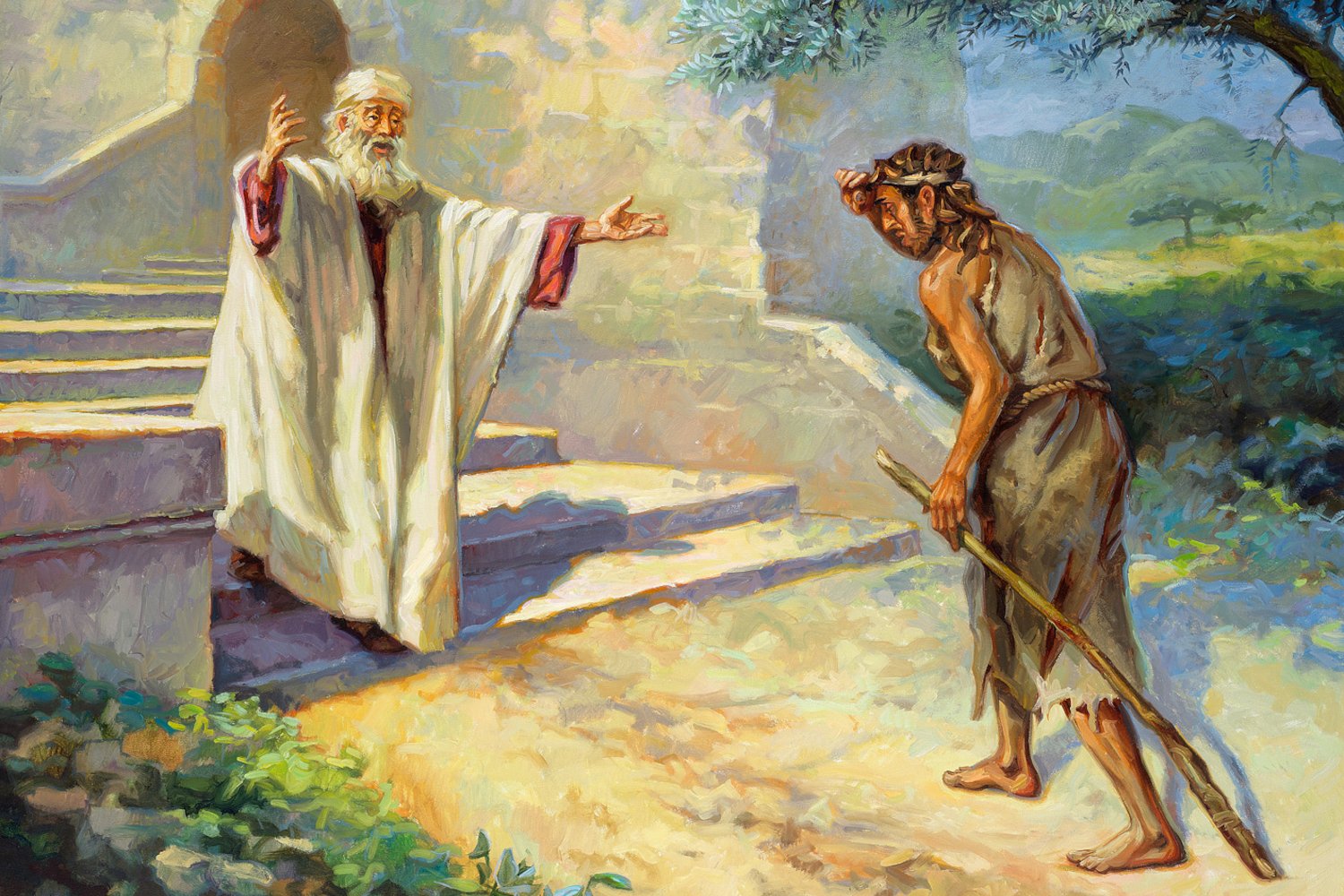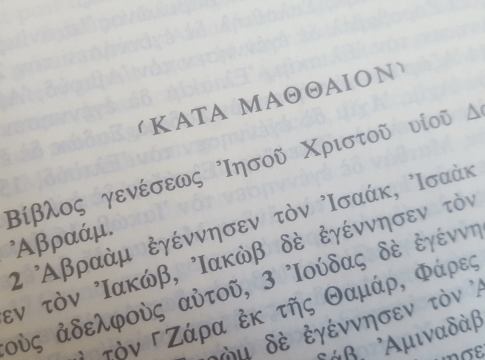
As any Christian who has ever had the honor of studying the Bible with a Jew or someone of Middle Eastern heritage will attest, the New Testament contains a plethora of knowledge that (Western) Christians regretfully overlook or fail to realize. This is due to the fact that a large number of Christians are ignorant of the clear cultural and linguistic backgrounds of everyone from the “Biblical” region or with ties to that section of the world. Here are two instances that may inspire you to explore the depths of Scripture even further:
1. Perceptions change the story
When a friend texts us in the morning that they intend to travel from London to Rome later that day, we will assume the friend to be in Rome by the end of the afternoon. That is because we know what the trip will involve. The message ‘Now in London, traveling to Rome today’ will put images into our mind of an airport, a plane, and 2-3 hours in the air before touching down in Italy. Had this same message been written in 1823, the images in the head of the recipient would have been very different. A voyage from London to Rome would have taken weeks; traveling by horse drawn carriage, a steam ship, and – in the absence of a railway network – many more days in carriages along slow dirt roads.
The same information, then, “Now in London, traveling to Rome today,” can therefore paint a very different picture based on our level of understanding on the “how and when.” Bible verses might also evoke diverse mental images, depending on our knowledge of Jewish culture and “period customs.”
2. The implications of seemingly simple details
Jesus gives several fishermen, including Peter, James, and John, instructions in Luke 5:1–11: first, to go out and catch fish, and then, to follow Him. “Immediately they left the boat and their father and followed Him,” according to Luke 5:11.
This verse’s significance will probably go unnoticed by readers in the modern era who are not fishers. Fishermen are required to wash their nets after every fishing excursion. Organic trash will continue to adhere to the nets if they don’t. This will cause the nets to corrode and begin to smell. It will also harm any fish that is trapped in them. If nets are not cleaned and fixed right away, the fisherman could lose his job. Ultimately, the nets are his tools, and he cannot fish if the nets are damaged. This implies that leaving filthy nets entails forfeiting a paycheck. In light of this, we may recognize that the disciples’ choice to follow Jesus was a very significant one.
3. How simple details can have a grand effect
On sometimes, the detail comes from a time before the story begins. The discourse between Jesus and the Samaritan woman is described in John 4:4–42. A Jewish man would not often approach a Samaritan for help, as the woman herself makes clear. Additionally, as verse 27 states, it is highly unusual for a male to strike up a discussion with a woman on her own. However, what first attracted this woman to that place? She is by herself for the sixth hour, which is the hottest part of the day. Because it was safer, women would typically visit wells earlier in the day and in groups with other women.
Does she have to go to the well by herself at that time because of her living situation with the “man who is not her husband”? Did the group not accept her? The cause is still unknown. She does, however, seem to know more about God’s promises than the typical person, as seen by her inquiries and answers, particularly in John 4:25 when she states, “I know that Messiah is coming.” He will give us an explanation of everything when He returns. In any event, as Jesus passes, her situation places her at the well. The Samaritan town’s residents are saved as a result of her encounter with Jesus. This meeting was divinely arranged by God!
4. Symbolism indicating a grand future
Sometimes we fabricate our own narratives about what happened depending on how people who came before us understood it. “Wise men from the east came to Jerusalem,” according to Matthew 2:1. Observe that the presence of the three wise men is not mentioned in the text. Two, or 10, or whatever might have happened. We do know that they presented three different kinds of gifts, according to Matthew 2:11: “gold, frankincense, and myrrh.”
In case you were wondering, no, these are not your average baby presents. Every gift has a connotation. While frankincense is indicative of deity or a priestly role, gold stands for kingship on earth. Myrrh represents death and was used to embalm the dead. Joseph was instructed to take Mary and the Child to Egypt once the wise men left, thus the gold they were given would soon show to be a very useful gift. This gift would have been especially helpful for the Holy Family’s food and travel expenditures. Gifts for the future, the frankincense and myrrh represented Jesus’ status as our High Priest (Hebrews 2:17; 4:14; 5:6; 7:26-27) and His divinity (John 1:14, Luke 1:35).
5. Context brings to life what we read
Jesus tells the Parable of the Prodigal Son in Luke 15:11–32. After receiving his half of his father’s estate, the youngest son departs from both his father and sibling. He spends the money overseas, comes to regret his actions, and is greeted with open arms upon his return.
The image in the thoughts of the Pharisees and their companions upon hearing this fable would have been a reflection of their cultural knowledge. “Father, please give me my portion of the property.” This would have indicated to them that the son had declared his father dead and was claiming his inheritance. A serious slight, especially considering that he was the youngest son and would have only gotten half of the eldest son’s property under Hebrew inheritance law. This implies that in order to pay his son, the father would have needed to determine the worth of his estate.
The son is taken to feed pigs in a field in verse 15. Jews consider pigs to be dirty animals, so the son who joyfully accepted his father’s money to rejoice is completely degraded. The father then rushes to embrace his son in verse 20. While first-century Jews perceived extremely disgraceful behavior, we see a likeable father. Since the father would have shown off his naked legs while running, and this was very improper. In addition, the son had misplaced his inheritance abroad. In Jewish tradition, this transgression would have led to a unique ritual known as the “kezazah,” which would have severed his ties to the community. However, by assuming his son’s humiliation, the father avoids this “rejection from the community.”
Of course, shame and humiliation are not the main themes of the lost son narrative for Christians. The fact that the lost prodigal son turns to his loving father and receives his unconditional welcome back is something to celebrate. What a fantastic opportunity!
Thanks to GospelImages for the wonderful image!





